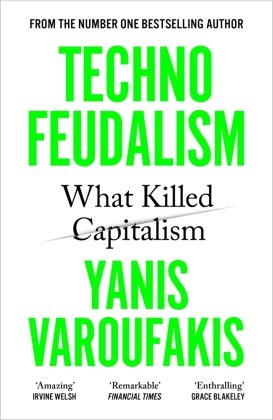'What an amazing piece of work this is. Ground-breaking, thought-provoking and highly accessible. Everyone should read it. The dark, scary, exciting song of our age. 100 out of 100' IRVINE WELSH
Capitalism is dead. Welcome to technofeudalism.
In his boldest and most far-reaching book, the visionary economist and number-one bestselling author Yanis Varoufakis shows how the owners of big tech became the world's feudal overlords - replacing capitalism with a fundamentally new system that enslaves our minds, defies democracy and rewrite the rules of global power.
But as Varoufakis also reveals, technofeudalism contains new opportunities to thwart and overturn it, bringing into focus more clearly than ever the revolution we need to escape our digital prison.
'An epochal, once-in-a-millennium shift . . . this isn't just new technology. This is the world grappling with an entirely new economic system and therefore political power' Observer
'An urgent demand to seize the means of computation' CORY DOCTOROW
A FINANCIAL TIMES BEST BOOK OF THE YEAR


